Features
From Art to Diplomacy: How Jewish Leaders and Thinkers Shaped History and Modernity
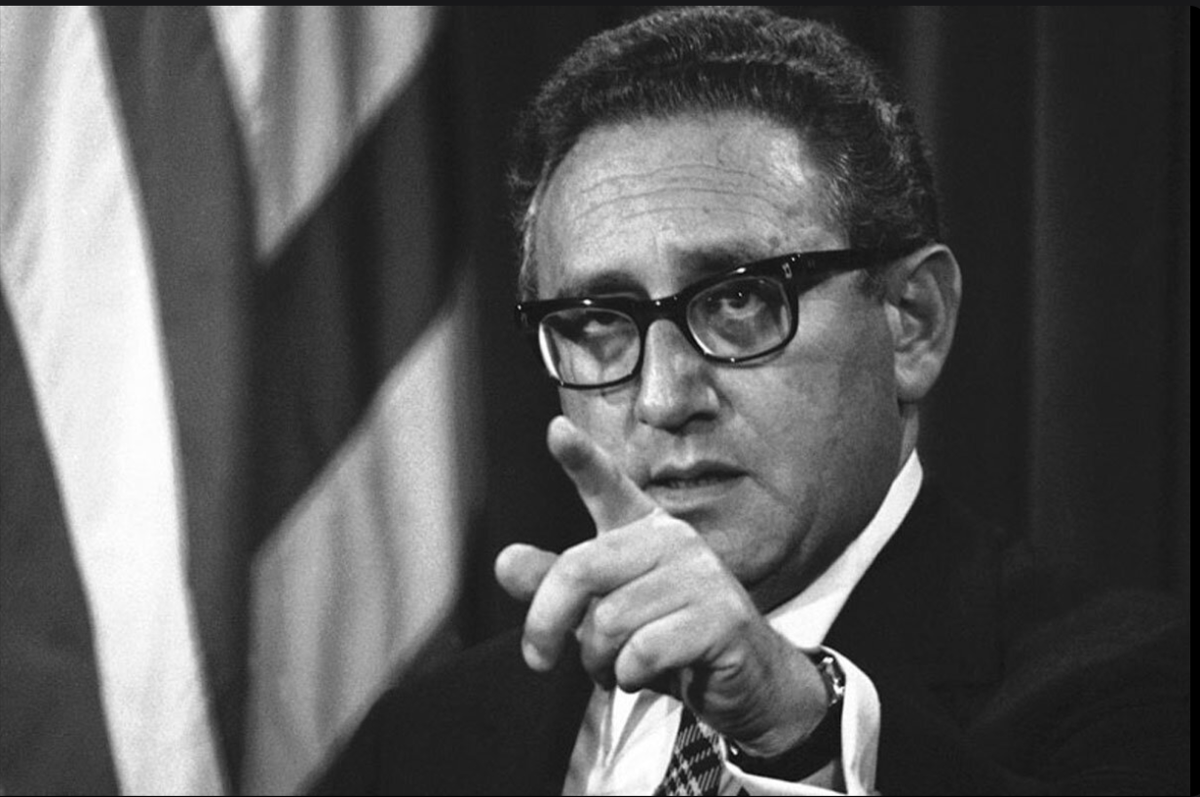
In this article, we delve into the impact of Jewish public figures on the global stage, exploring their role in shaping political landscapes and cultural events
The Impact of Jewish Public Figures on World Politics and Culture
From prominent politicians to renowned artists, Jews have made significant contributions that have shaped our world.
With their diverse backgrounds and experiences, Jewish public figures have played a key role in promoting social change, advocating for human rights, and shaping cultural narratives. Their influence can be seen in a variety of fields, such as literature, art, music, and film, where Jewish artists have left an indelible mark on creativity and expression.
By exploring the contributions of Jewish public figures, together with the plinko game team, we aim to shed light on the enormous impact they have had on shaping our world.
Historical Background: The Role of Jewish Intellectuals and Leaders Throughout History
The historical narrative of Jewish intellectuals and leaders is rich and complex, woven into the fabric of many societies across the globe. From ancient times, Jews have contributed to various fields, including philosophy, science, and politics. Figures such as Maimonides and Spinoza have significantly influenced Western thought through their philosophical writings. These intellectuals not only shaped Jewish culture but also left a lasting mark on global intellectual history, challenging prevailing norms and encouraging critical thinking.
The struggle for social justice and human rights has often found expression through Jewish leaders. Throughout history, Jews have faced persecution and discrimination, which has fueled their commitment to advocating for justice. The Jewish experience of diaspora has led to a unique perspective on oppression and resilience, enabling Jewish leaders to become champions for the marginalized. Their contributions to movements for civil rights and social justice have been instrumental in shaping contemporary political landscapes, particularly in the United States and Europe.
Moreover, the integration of Jewish intellectuals into broader societal frameworks has fostered cross-cultural dialogues. Jewish figures have often acted as bridges between cultures, promoting understanding and collaboration. This historical backdrop sets the stage for examining the specific contributions of contemporary Jewish public figures in politics and culture, highlighting how their legacy continues to influence the world today.
Jewish Public Figures in Politics: Notable Examples and Their Impact on Global Affairs
Jewish politicians have played pivotal roles in shaping global politics, often taking on leadership positions that have allowed them to influence significant policy decisions.
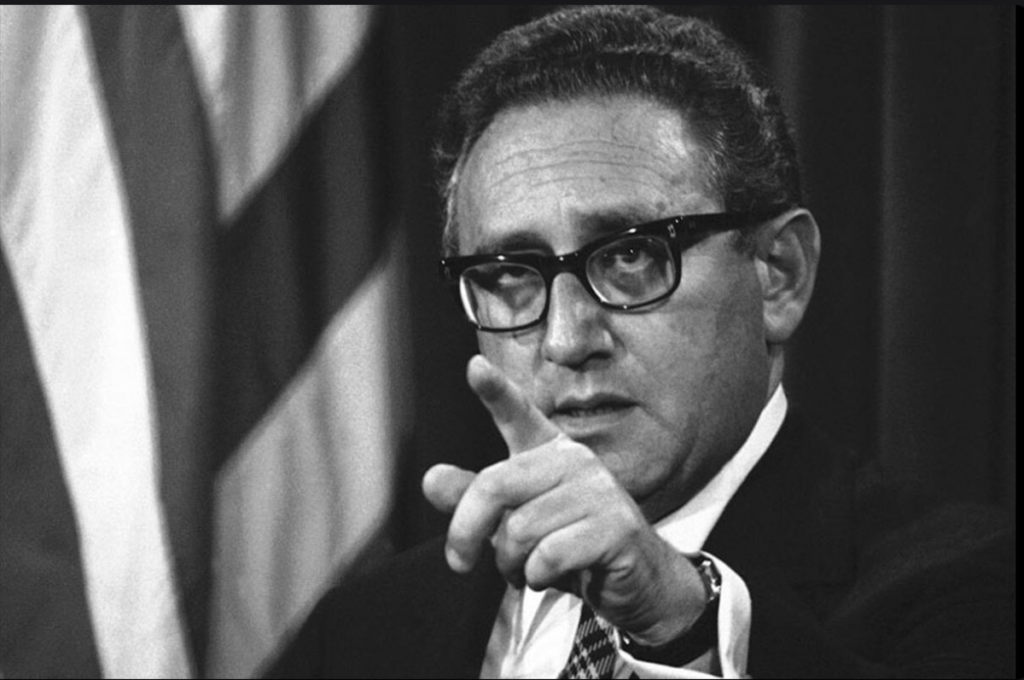
One notable example is Henry Kissinger, who served as the United States Secretary of State and National Security Advisor. Kissinger’s approach to foreign policy, particularly during the Cold War, emphasized diplomacy and realpolitik. His efforts in negotiating peace agreements, such as the Paris Peace Accords, demonstrate the power of Jewish public figures in navigating complex international relations.

Another influential figure is Ruth Bader Ginsburg, the late Supreme Court Justice known for her staunch advocacy for gender equality and civil rights. Ginsburg’s legal opinions and dissents have had a profound impact on American jurisprudence, often pushing the boundaries of what is considered constitutional. Her legacy as a champion for women’s rights and social justice continues to inspire generations, illustrating the power of Jewish individuals to drive change within the legal and political arenas.
Additionally, figures like Benjamin Netanyahu have made significant contributions to political discourse on a global scale. As the Prime Minister of Israel, Netanyahu has been at the helm during crucial moments in Israeli history, navigating the complexities of Middle Eastern politics. His approach to security and foreign policy has sparked both support and controversy, reflecting the intricate dynamics of Jewish leadership in geopolitics. These examples underscore the diverse roles Jewish public figures have played in influencing global affairs, shaping policies that resonate far beyond their immediate contexts.
Jewish Public Figures in Culture: Contributions to Art, Literature, Music, and Entertainment
The cultural contributions of Jewish public figures are equally profound, spanning various artistic fields and leaving an indelible mark on global culture. In literature, authors like Philip Roth and Elie Wiesel have explored themes of identity, memory, and the human condition through their poignant narratives. Roth’s exploration of Jewish identity in America challenged stereotypes and opened dialogues about cultural belonging, while Wiesel’s memoirs on the Holocaust serve as powerful reminders of resilience and the importance of remembrance.
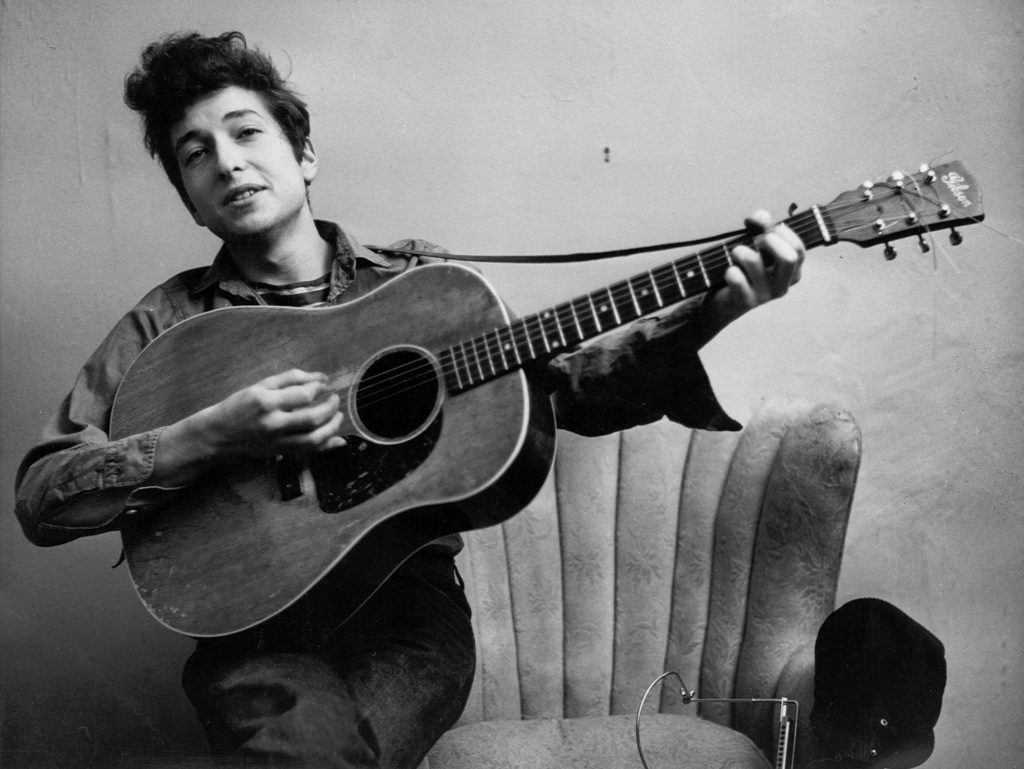
In the realm of music, Jewish artists have made significant contributions that transcend genres. From the classical compositions of Leonard Bernstein to the revolutionary sounds of Bob Dylan, Jewish musicians have shaped the musical landscape. Bernstein’s work in classical music and Broadway has left a legacy of artistic excellence, while Dylan’s lyrics reflect a deep engagement with social issues and human emotions. These artists not only entertain but also provoke thought and inspire social change through their craft.
Furthermore, the film industry has been significantly influenced by Jewish filmmakers and actors, with figures like Steven Spielberg and Natalie Portman leading the charge. Spielberg’s films often address complex moral dilemmas and historical narratives, while Portman’s work as an actress and director champions diverse stories and perspectives. Through their storytelling, these artists contribute to cultural discourse, emphasizing the importance of empathy and understanding in an increasingly divided world. The influence of Jewish public figures in culture is a testament to their creativity and commitment to social issues, enriching the global cultural landscape.
Controversies and Criticisms: Examining the Debates Surrounding Jewish Influence
Despite the significant contributions of Jewish public figures, their influence has not been without controversy. Debates surrounding Jewish influence often arise, particularly in the context of politics and media. Critics sometimes allege that Jewish individuals hold disproportionate power in various sectors, leading to accusations of conspiracy and manipulation. These narratives can perpetuate harmful stereotypes and contribute to anti-Semitic sentiment, highlighting the need for critical examination of such claims.
It is essential to differentiate between legitimate discussions about influence and the perpetuation of conspiracy theories that seek to scapegoat Jewish communities. Many Jewish public figures have risen to prominence through hard work, talent, and advocacy, rather than through nefarious means. Acknowledging their contributions while recognizing the complexities of their influence can foster nuanced discussions that combat anti-Semitism and promote understanding.
Moreover, the portrayal of Jewish individuals in media and popular culture can contribute to the reinforcement of stereotypes. It is crucial to critically engage with these representations and advocate for more diverse and accurate portrayals of Jewish life. Through education and dialogue, society can challenge misconceptions and celebrate the multifaceted contributions of Jewish public figures to politics, culture, and beyond.
The Jewish Diaspora and Its Impact on Global Networks
The Jewish diaspora has created a rich tapestry of experiences and connections that have influenced global networks. Historically, Jews have migrated to various regions, often forming tight-knit communities that have contributed to local cultures while maintaining their unique identity. This ability to adapt and thrive in diverse environments has enabled Jewish individuals to forge important connections across borders, creating a network of influence that extends beyond geographical boundaries.
The diaspora has facilitated the exchange of ideas, fostering a global dialogue that has enriched cultural and political landscapes. Jewish communities around the world often engage in philanthropy and social activism, addressing pressing issues such as poverty, education, and human rights. Organizations like the Jewish Federation and various international NGOs reflect the commitment of the Jewish diaspora to contribute positively to society, promoting social justice and intercultural understanding.
Furthermore, the interconnectedness of the Jewish diaspora has allowed for a robust exchange of knowledge and resources. Jewish public figures often draw on their diverse backgrounds and experiences, leveraging their networks to advocate for change on a global scale. This collaborative approach underscores the importance of community and solidarity in addressing complex challenges, highlighting the enduring influence of the Jewish diaspora in shaping global networks.
Case Studies: Examining Specific Individuals and Their Contributions
To illustrate the profound influence of Jewish public figures, we can examine specific case studies that highlight their contributions across various domains. One notable example is the late Shimon Peres, who served as the President and Prime Minister of Israel. Peres was a visionary leader known for his efforts in promoting peace in the Middle East. His role in the Oslo Accords exemplifies the potential for dialogue and compromise in resolving longstanding conflicts.
In the realm of art, Marc Chagall stands out as a revolutionary painter whose works encapsulate the essence of Jewish identity and culture. Chagall’s unique style, characterized by vibrant colors and dreamlike imagery, reflects his experiences as a Jewish artist navigating the complexities of the 20th century. His contributions to modern art have influenced generations of artists and continue to resonate in contemporary creative expressions.
Another significant figure is Ruth Messinger, a prominent advocate for social justice and former president of American Jewish World Service. Messinger’s work in international development highlights the intersection of Jewish values and global humanitarian efforts. Through her leadership, she has raised awareness about issues such as poverty and human rights, demonstrating the capacity of Jewish public figures to effect change on a global scale. These case studies underscore the diverse contributions of Jewish individuals, illustrating how their legacies continue to shape our world today.
The Power of Jewish Organizations and Lobbying Groups
Jewish organizations and lobbying groups have played a vital role in advocating for Jewish interests and promoting social change. Organizations such as the Anti-Defamation League (ADL) and the American Israel Public Affairs Committee (AIPAC) have been instrumental in shaping public policy and fostering community engagement. These organizations work tirelessly to combat anti-Semitism, promote civil rights, and strengthen ties between Israel and the United States.
The influence of Jewish lobbying groups extends beyond domestic politics, impacting international relations as well. AIPAC, for instance, has been a significant player in advocating for strong U.S.-Israel relations, leveraging political connections to promote policies that align with Jewish interests. The effectiveness of these organizations highlights the importance of collective action and advocacy in achieving political goals and addressing pressing social issues.
Moreover, Jewish organizations often serve as platforms for community engagement and activism. They provide resources for education, cultural programming, and social services, fostering a sense of community and belonging among Jewish individuals. By mobilizing collective resources and voices, these organizations play a crucial role in amplifying the contributions of Jewish public figures and advocating for diverse perspectives within the broader societal context.
Debunking Myths and Stereotypes: Separating Fact from Fiction
Addressing the myths and stereotypes surrounding Jewish influence is essential for fostering a more accurate understanding of their contributions. Misconceptions about Jewish individuals often stem from historical prejudices and societal biases, which can distort perceptions and promote harmful narratives. It is crucial to engage in open conversations that challenge these stereotypes and promote a more nuanced understanding of Jewish identity and influence.
Many myths surrounding Jewish individuals are rooted in conspiratorial thinking, suggesting that Jews exert undue control over various sectors, including finance, media, and politics. These narratives often lack empirical evidence and serve to scapegoat Jewish communities for broader societal issues. By critically examining these claims and promoting factual information, we can combat anti-Semitism and foster a more inclusive dialogue about the contributions of Jewish public figures.
Education plays a vital role in debunking myths and stereotypes. By promoting awareness of Jewish history, culture, and achievements, we can cultivate understanding and empathy. Initiatives that celebrate Jewish contributions to society can help counteract negative narratives and highlight the diverse perspectives within the Jewish community. Ultimately, fostering a culture of dialogue and education is essential for promoting inclusivity and understanding in our increasingly interconnected world.
Conclusion
The influence of Jewish public figures on global politics and culture is a testament to their resilience, creativity, and commitment to social justice. From shaping political landscapes to enriching cultural narratives, Jewish individuals have made significant contributions that continue to resonate today. Their diverse backgrounds and experiences have enabled them to navigate complex societal challenges, advocating for change and promoting understanding across cultures.
As we reflect on the ongoing influence of Jewish public figures, it is crucial to recognize the importance of diverse perspectives in shaping our world. The contributions of Jewish individuals serve as a reminder of the power of collaboration and collective action in addressing pressing issues. By embracing diversity and promoting dialogue, we can foster a more inclusive society that values the contributions of all individuals, regardless of their background.
In conclusion, the legacy of Jewish public figures is multifaceted and enduring. Their impact on global politics and culture underscores the importance of recognizing and celebrating diverse voices. By continuing to explore and appreciate these contributions, we can foster a deeper understanding of our shared human experience and work towards a more just and equitable world for all.
Features
Israel Has Always Been Treated Differently
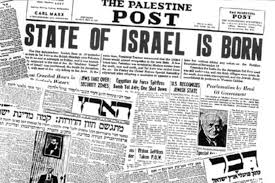
By HENRY SREBRNIK We think of the period between 1948 and 1967 as one where Israel was largely accepted by the international community and world opinion, in large part due to revulsion over the Nazi Holocaust. Whereas the Arabs in the former British Mandate of Palestine were, we are told, largely forgotten.
But that’s actually not true. Israel declared its independence on May 14,1948 and fought for its survival in a war lasting almost a year into 1949. A consequence was the expulsion and/or flight of most of the Arab population. In the immediate aftermath of the Second World War, millions of other people across the world were also driven from their homes, and boundaries were redrawn in Europe and Asia that benefited the victorious states, to the detriment of the defeated countries. That is indeed forgotten.
Israel was not admitted to the United Nations until May 11, 1949. Admission was contingent on Israel accepting and fulfilling the obligations of the UN Charter, including elements from previous resolutions like the November 29, 1947 General Assembly Resolution 181, the Partition Plan to create Arab and Jewish states in Palestine. This became a dead letter after Israel’s War of Independence. The victorious Jewish state gained more territory, while an Arab state never emerged. Those parts of Palestine that remained outside Israel ended up with Egypt (Gaza) and Jordan (the Old City of Jerusalem and the West Bank). They were occupied by Israel in 1967, after another defensive war against Arab states.
And even at that, we should recall, UN support for the 1947 partition plan came from a body at that time dominated by Western Europe and Latin American states, along with a Communist bloc temporarily in favour of a Jewish entity, at a time when colonial powers were in charge of much of Asia and Africa. Today, such a plan would have had zero chance of adoption.
After all, on November 10, 1975, the General Assembly, by a vote of 72 in favour, 35 against, with 32 abstentions, passed Resolution 3379, which declared Zionism “a form of racism.” Resolution 3379 officially condemned the national ideology of the Jewish state. Though it was rescinded on December 16, 1991, most of the governments and populations in these countries continue to support that view.
As for the Palestinian Arabs, were they forgotten before 1967? Not at all. The United Nations General Assembly adopted resolution 194 on December 11, 1948, stating that “refugees wishing to return to their homes and live at peace with their neighbours should be permitted to do so at the earliest practicable date, and that compensation should be paid for the property of those choosing not to return and for loss of or damage to property which, under principles of international law or equity, should be made good by the Governments or authorities responsible.” This is the so-called right of return demanded by Israel’s enemies.
As well, the United Nations Relief and Works Agency for Palestine Refugees in the Near East (UNRWA) was established Dec. 8, 1949. UNRWA’s mandate encompasses Palestinians who fled or were expelled during the 1948 war and subsequent conflicts, as well as their descendants, including legally adopted children. More than 5.6 million Palestinians are registered with UNRWA as refugees. It is the only UN agency dealing with a specific group of refugees. The millions of all other displaced peoples from all other wars come under the auspices of the UN High Commissioner for Refugees (UNHCR). Yet UNRWA has more staff than the UNHRC.
But the difference goes beyond the anomaly of two structures and two bureaucracies. In fact, they have two strikingly different mandates. UNHCR seeks to resettle refugees; UNRWA does not. When, in 1951, John Blanford, UNRWA’s then-director, proposed resettling up to 250,000 refugees in nearby Arab countries, those countries reacted with rage and refused, leading to his departure. The message got through. No UN official since has pushed for resettlement.
Moreover, the UNRWA and UNHCR definitions of a refugee differ markedly. Whereas the UNHCR services only those who’ve actually fled their homelands, the UNRWA definition covers “the descendants of persons who became refugees in 1948,” without any generational limitations.
Israel is the only country that’s the continuous target of three standing UN bodies established and staffed solely for the purpose of advancing the Palestinian cause and bashing Israel — the Committee on the Exercise of the Inalienable Rights of the Palestinian People; the Special Committee to Investigate Israeli Practices Affecting the Human Rights of the Palestinian People; and the Division for Palestinian Rights in the UN’s Department of Political Affairs.
Israel is also the only state whose capital city, Jerusalem, with which the Jewish people have been umbilically linked for more than 3,000 years, is not recognized by almost all other countries.
So from its very inception until today, Israel has been treated differently than all other states, even those, such as the Democratic Republic of Congo, Somalia, and Sudan, immersed in brutal civil wars from their very inception. Newscasts, when reporting about the West Bank, use the term Occupied Palestinian Territories, though there are countless such areas elsewhere on the globe.
Even though Israel left Gaza in September 2005 and is no longer in occupation of the strip (leading to its takeover by Hamas, as we know), this has been contested by the UN, which though not declaring Gaza “occupied” under the legal definition, has referred to Gaza under the nomenclature of “Occupied Palestinian Territories.” It seems Israel, no matter what it does, can’t win. For much of the world, it is seen as an “outlaw” state.
Henry Srebrnik is a professor of political science at the University of Prince Edward Island.
Features
Why New Market Launches Can Influence Investment Strategies
New market launches play a critical role in shaping how investors plan, diversify, and execute their financial strategies. When a company transitions from private ownership to public trading, it creates fresh opportunities for capital participation, valuation discovery, and long-term growth assessment. An upcoming IPO often attracts retail and institutional investors alike, as it offers an opportunity to invest at an early public stage. These launches influence market sentiment, sector momentum, and portfolio allocation decisions, making them an important consideration for anyone seeking to align investment strategies with evolving market dynamics. Understanding how new listings affect pricing, risk, and long-term potential helps investors make more informed, disciplined choices.
Understanding the Role of New Market Launches
New market launches introduce fresh capital, innovation, and competition into public markets. They often signal broader economic trends and provide insights into emerging sectors. For investors, these launches are more than just new tickers—they shape market behavior and strategic planning.
● Expanding Market Opportunities
New listings expand the investable universe by introducing companies that were previously inaccessible. This allows investors to explore new industries, technologies, or business models, helping diversify portfolios and reduce reliance on mature or saturated sectors.
● Price Discovery and Valuation Dynamics
Initial listings go through a price-discovery phase in which demand and supply determine valuation. This process can create short-term volatility but also offers strategic entry points for investors who understand fundamentals and market sentiment.
● Capital Flow Redistribution
When new companies enter the market, capital often shifts from existing stocks to new offerings. This redistribution can influence sector performance and temporarily affect broader indices, thereby altering portfolio allocation strategies.
● Reflection of Economic Confidence
A steady flow of new listings often reflects positive economic sentiment and business confidence. Investors monitor these signals to gauge market health and adjust their equity exposure accordingly.
● Increased Market Liquidity
New launches contribute to overall market liquidity by increasing the number of tradable shares. Increased liquidity improves price efficiency and offers investors more flexibility in executing trades.
How New Listings Shape Investor Decision-Making
Investment strategies are not static; they evolve based on market conditions and available opportunities. New market launches influence how investors assess risk, timing, and portfolio balance.
● Risk Assessment and Appetite
Newly listed companies may carry higher uncertainty due to limited public financial history. Investors must evaluate their risk tolerance and decide whether early exposure aligns with their overall strategy.
● Portfolio Diversification
Including new listings can enhance diversification by adding exposure to different revenue models or growth stages. This helps balance portfolios that may be overly concentrated in established companies.
● Short-Term vs Long-Term Strategies
Some investors seek short-term gains driven by listing momentum, while others focus on long-term value creation. Understanding this distinction helps align new investments with broader financial goals.
● Sector Rotation Strategies
New listings often emerge from high-growth sectors. Investors may rotate capital into these sectors early, anticipating future expansion and innovation-led growth.
● Behavioral Influence on Markets
Public interest and media coverage surrounding new listings can influence investor behavior. Awareness of sentiment-driven movements helps investors avoid emotional decision-making.
Evaluating New Market Launches Effectively
Not all new listings present equal opportunities. A structured evaluation framework helps investors separate strong prospects from speculative risks.
● Business Model Strength
Understanding how a company generates revenue and maintains profitability is a fundamental part of evaluating new market entrants. A well-defined business model shows how products or services create value for customers and how that value is monetized. Scalable models, diversified revenue streams, and predictable income sources often indicate stronger resilience and long-term investment potential, especially in competitive or evolving industries.
● Financial Transparency
Clear and detailed financial disclosures help investors assess a company’s overall health and risk profile. Reviewing revenue growth, operating margins, debt obligations, and cash flow stability provides insight into financial discipline and sustainability. Transparent reporting practices reflect management accountability and reduce uncertainty, enabling investors to make informed decisions based on reliable data rather than speculation.
● Competitive Positioning
A company’s ability to compete effectively within its industry is a key determinant of future performance. Investors analyze market share, differentiation strategies, pricing power, and barriers to entry to understand competitive advantages. Strong positioning suggests the company can defend its market position, withstand competitive pressures, and capitalize on emerging opportunities over time.
● Management and Governance
Leadership quality plays a crucial role in long-term value creation. Experienced executives with a track record of execution, combined with robust corporate governance structures, signal operational credibility. Transparent decision-making, independent oversight, and ethical practices help reduce risk and align management actions with shareholder interests, particularly for newly listed companies.
● Growth Sustainability
While rapid expansion can attract attention, sustainable growth is what supports lasting returns. Investors assess whether realistic assumptions, operational capacity, and consistent market demand support growth projections. Balanced expansion strategies that prioritize profitability, efficiency, and long-term planning are often viewed as more reliable than aggressive growth that strains resources or increases financial risk.
Strategic Timing and Market Conditions
The success of an upcoming IPO is closely linked to strategic timing and prevailing market conditions, which significantly influence investor response and post-listing performance. Market sentiment plays a decisive role, as optimistic, growth-driven environments often generate strong demand for new listings, supporting positive price momentum after debut. In contrast, cautious or volatile markets can suppress enthusiasm, limiting upside potential even for fundamentally strong companies. Alongside sentiment, macroeconomic factors such as interest rate trends, monetary policy direction, and fiscal measures shape capital allocation decisions. Lower interest rates generally encourage investors to seek growth opportunities through IPOs, while tighter policy conditions may dampen risk appetite. Together, timing, sentiment, and policy context form a critical framework for investors to evaluate entry strategies for upcoming IPOs.
Conclusion
New market launches have a meaningful influence on investment strategies by introducing fresh opportunities, shifting capital flows, and shaping market sentiment. From diversification and growth exposure to timing and risk management, these listings require thoughtful evaluation and disciplined execution. By understanding their broader impact and aligning participation with financial goals, investors can integrate new opportunities into well-structured portfolios while maintaining balance and long-term focus.
Features
Are Niche and Unconventional Relationships Monopolizing the Dating World?

The question assumes a battle being waged and lost. It assumes that something fringe has crept into the center and pushed everything else aside. But the dating world has never operated as a single system with uniform rules. People have always sorted themselves according to preference, circumstance, and opportunity. What has changed is the visibility of that sorting and the tools available to execute it.
Online dating generated $10.28 billion globally in 2024. By 2033, projections put that figure at $19.33 billion. A market of that size does not serve one type of person or one type of relationship. It serves demand, and demand has always been fragmented. The apps and platforms we see now simply make that fragmentation visible in ways that provoke commentary.
Relationship Preferences
Niche dating platforms now account for nearly 30 percent of the online dating market, and projections suggest they could hold 42 percent of market share by 2028. This growth reflects how people are sorting themselves into categories that fit their actual lives.
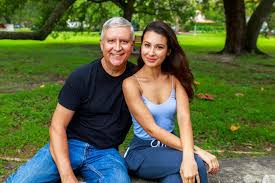
Some want a sugar relationship, others seek partners within specific religious or cultural groups, and still others look for connections based on hobbies or lifestyle choices. The old model of casting a wide net has given way to something more targeted.
A YouGov poll found 55 percent of Americans prefer complete monogamy, while 34 percent describe their ideal relationship as something other than monogamous. About 21 percent of unmarried Americans have tried consensual non-monogamy at some point. These numbers do not suggest a takeover. They suggest a population with varied preferences now has platforms that accommodate those preferences openly rather than forcing everyone into the same structure.
The Numbers Tell a Different Story
Polyamory and consensual non-monogamy receive substantial attention in media coverage and on social platforms. The actual practice rate sits between 4% and 5% of the American population. That figure has remained relatively stable even as public awareness has increased. Being aware of something and participating in it are separate behaviors.
A 2020 YouGov poll reported that 43% of millennials describe their ideal relationship as non-monogamous. Ideals and actions do not always align. People answer surveys about what sounds appealing in theory. They then make decisions based on their specific circumstances, available partners, and emotional capacity. The gap between stated preference and lived reality is substantial.
Where Young People Are Looking
Gen Z accounts for more than 50% of Hinge users. According to a 2025 survey by The Knot, over 50% of engaged couples met through dating apps. These platforms have become primary infrastructure for forming relationships. They are not replacing traditional dating; they are the context in which traditional dating now occurs.
Younger users encounter more relationship styles on these platforms because the platforms allow for it. Someone seeking a conventional monogamous partnership will still find that option readily available. The presence of other options does not eliminate this possibility. It adds to the menu.
Monopoly Implies Exclusion
The framing of the original question suggests that niche relationships might be crowding out mainstream ones. Monopoly means one entity controls a market to the exclusion of competitors. Nothing in the current data supports that characterization.
Mainstream dating apps serve millions of users seeking conventional relationships. These apps have added features to accommodate other preferences, but their core user base remains people looking for monogamous partnerships. The addition of new categories does not subtract from existing ones. Someone filtering for a specific religion or hobby does not prevent another person from using the same platform without those filters.
What Actually Changed
Two things happened. First, apps built segmentation into their business models because segmentation increases user satisfaction. People find what they want faster when they can specify their preferences. Second, social acceptance expanded for certain relationship types that previously operated in private or faced stigma.
Neither of these developments amounts to a monopoly. They amount to market differentiation and cultural acknowledgment. A person seeking a sugar arrangement and a person seeking marriage can both use apps built for their respective purposes. They are not competing for the same resources.
The Perception Problem
Media coverage tends toward novelty. A story about millions of people using apps to find conventional relationships does not generate engagement. A story about unconventional relationship types generates clicks, comments, and shares. This creates a perception gap between how often something is discussed and how often it actually occurs.
The 4% to 5% practicing polyamory receive disproportionate coverage relative to the 55% who prefer complete monogamy. The coverage is not wrong, but it creates an impression of prevalence that exceeds reality.
Where This Leaves Us
Niche relationships are not monopolizing dating. They are becoming more visible and more accommodated by platforms that benefit from serving specific needs. The majority of people seeking relationships still want conventional arrangements, and they still find them through the same channels.
The dating world is larger than it was before. It contains more explicit options. It allows people to state preferences that once required inference or luck. None of this constitutes a takeover. It constitutes an expansion. The space for one type of relationship did not shrink to make room for another. The total space grew.


